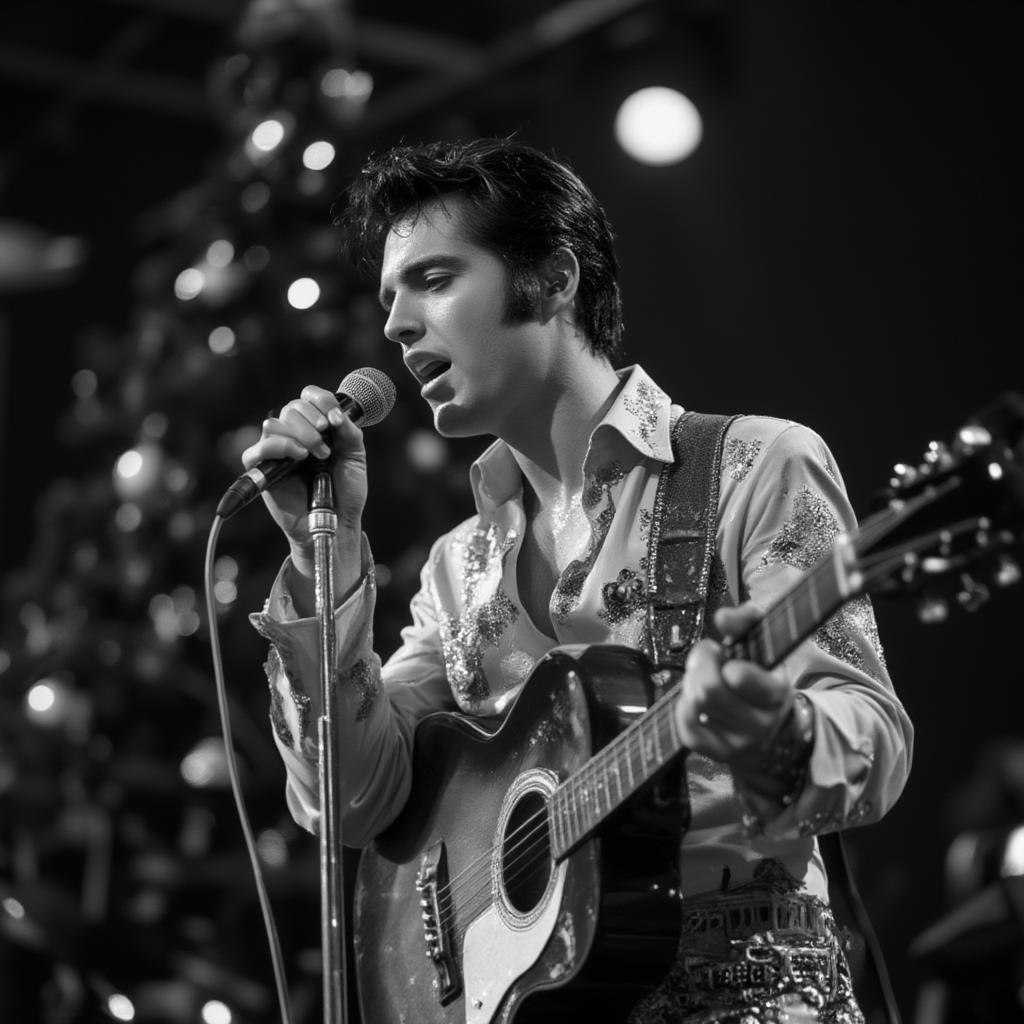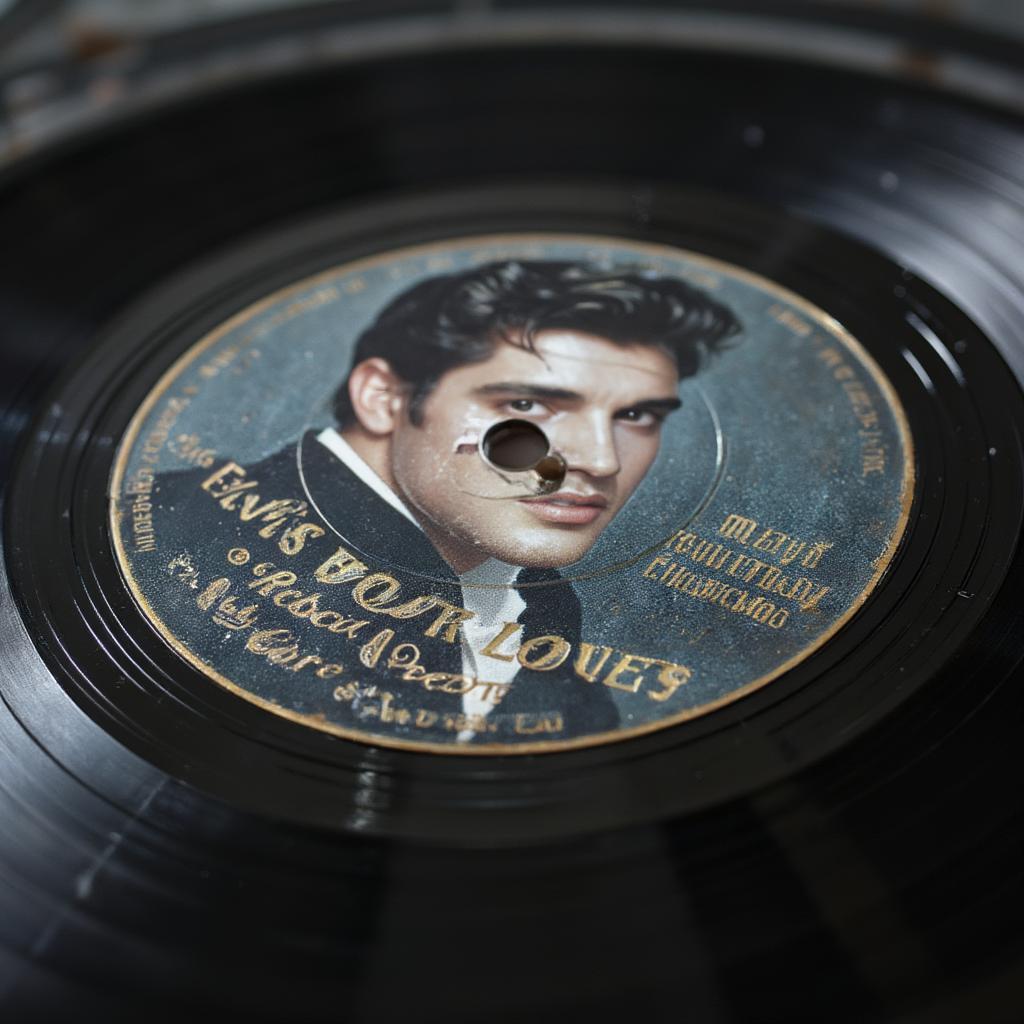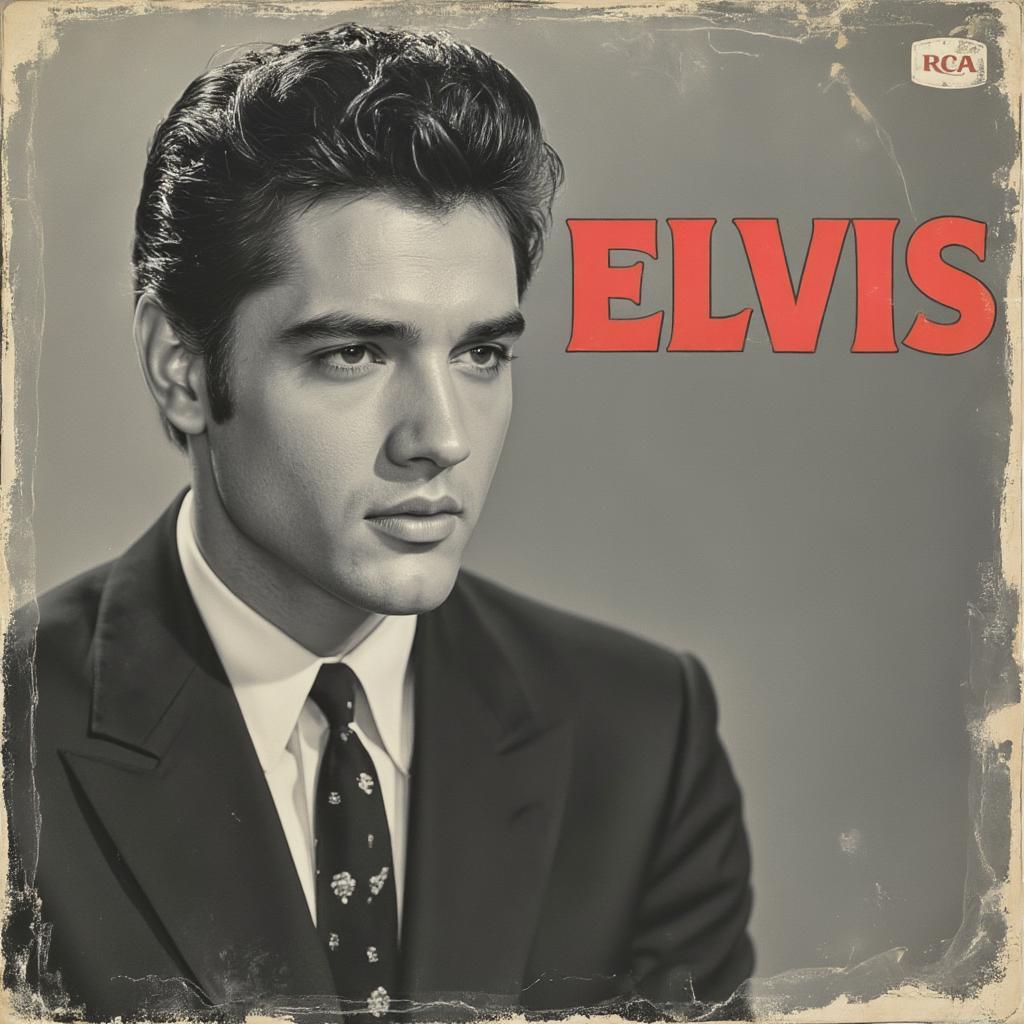G.I. Blues Songs: Exploring the Heart of Elvis Presley’s Military Service Era

Elvis Presley’s time in the U.S. Army is a significant chapter in his life, impacting not just his personal journey but also his musical evolution. While the G.I. Blues film and soundtrack are often associated with lighthearted entertainment, a deeper look reveals how these songs reflect the emotions, experiences, and cultural shifts of the era. We’re here to unpack that, delving into the heart of Elvis’s time in uniform and the musical gems it produced.
The movie G.I. Blues, released in 1960, wasn’t just a cinematic escape but also a bridge between Elvis’s raw rock and roll beginnings and his more polished, mainstream sound of the early 60s. The songs from the film, though sometimes dismissed as mere soundtrack fodder, actually offer insight into Elvis’s personal growth and the evolving musical landscape. We’re not talking about just throwaway tunes; these were crafted with care, blending elements of rock, pop, and even a touch of the blues to resonate with a broad audience. The film and its accompanying soundtrack were a huge commercial success, showing that Elvis’s appeal was broader than just rock and roll fans.
What Makes G.I. Blues Songs Unique?
The G.I. Blues soundtrack is notable for its blend of styles. While many associate Elvis with pure rock and roll, the album showcases a smoother, more accessible sound that was geared towards the mainstream. But make no mistake, his signature voice is at the forefront, adding passion and raw emotion to each track. The songs are thematically diverse, spanning from romantic ballads to up-tempo numbers that capture the energy of army life. Consider tracks like “Wooden Heart” and “Pocketful of Rainbows” compared to the upbeat title track. This contrast shows the range of his performance even within the film’s context.
The Transition from Rock and Roll to Pop Sensibilities
G.I. Blues marked a significant transition in Elvis’s career. The raw, rebellious rock and roll energy of the 1950s was tempered by a more polished, commercially viable sound. This wasn’t necessarily a compromise, but rather an evolution. The music, while still featuring elements of rock and roll, incorporated more pop-friendly melodies and arrangements. These songs were designed to appeal to a broader audience, beyond the teenagers who initially made Elvis a star. This shift is reflected in tracks like “Tonight Is So Right For Love” which show off his more romantic side.
Themes Reflecting Military Life and Beyond
Many of the G.I. Blues songs touch upon themes of longing, romance, and the challenges of separation—aspects of life that resonated with soldiers and their loved ones during the era. While the movie itself is lighthearted, these themes give an emotional depth to the music, making it more than just background noise. Consider the title song, “G.I. Blues,” an upbeat ode to military life, in contrast to more mellow and heartfelt songs like “Frankfort Special”. This contrast shows the full spectrum of emotion covered by the movie and its soundtrack.
“It’s easy to look at G.I. Blues as just a fun movie soundtrack, but listen closer, and you’ll hear the soul of a young man navigating the complexities of stardom, military service, and changing cultural landscapes,” says Dr. Evelyn Reed, a music historian specializing in mid-20th-century American music.
Key Songs from the G.I. Blues Soundtrack
Several songs from G.I. Blues have stood the test of time, becoming staples in Elvis’s discography. Let’s delve into some standouts.
“G.I. Blues” – The Energetic Title Track
The title track, “G.I. Blues,” is an upbeat, energetic number that perfectly captures the spirit of the movie. With its catchy melody and infectious rhythm, it’s a song that has fans on their feet. It’s an ideal opening song for the movie, setting a light-hearted and fun tone right from the start. The track perfectly captures the lighter, more playful side of Elvis.
“Wooden Heart” – A Romantic Ballad
“Wooden Heart,” with its gentle melody and heartfelt lyrics, has become one of Elvis’s most beloved ballads. The song’s German elements, while unique, contribute to the song’s international appeal. This track illustrates Elvis’s skill at delivering romantic songs and connecting with his audience on an emotional level. This song is often used as a romantic staple and has been covered by many other musicians over the years.
“Tonight Is So Right For Love” – An Example of Elvis’s Versatility
This song demonstrates Elvis’s vocal versatility. The melody is gentle and romantic while Elvis’s voice is full of emotion, showcasing his ability to perform both rock and roll and softer, more intimate numbers. This song is a prime example of how the G.I. Blues soundtrack allowed Elvis to explore and show off different sides of his music.
“Pocketful of Rainbows” – A Gentle and Hopeful Ballad
“Pocketful of Rainbows” showcases Elvis’s softer side, with its tender melody and hopeful lyrics. This song, often forgotten amongst more upbeat numbers from the soundtrack, displays the breadth of Elvis’s musical abilities in G.I. Blues. The song’s lyrics explore the theme of hope in a seemingly difficult time, highlighting a key theme in the movie. This is a beautiful ballad that showcases Elvis’s vocal strength and flexibility.
The Cultural Impact of G.I. Blues
The G.I. Blues movie and its soundtrack had a significant impact on popular culture. It cemented Elvis’s status as not only a rock and roll icon but also as a mainstream entertainer. This film was a crucial stepping stone that broadened his audience beyond just teenagers to adults across different generations. G.I. Blues helped to make Elvis a household name in a way that his earlier rock-and-roll did not.
Reflecting the Transition of the Era
The music from G.I. Blues mirrors the cultural transition of the early 1960s. The rebellious edge of 1950s rock and roll was starting to give way to a more polished, mainstream pop sound, a change that reflected evolving cultural tastes. Elvis, while still retaining elements of rock and roll, began to embrace a more mature and versatile persona. This was a part of the shift happening in music as the rock and roll revolution of the 50s began to give way to a more diverse landscape.
A Continuing Legacy
The songs from G.I. Blues continue to resonate with fans today. Their blend of rock, pop, and blues elements has made them timeless classics that appeal to multiple generations. The songs also provide a glimpse into a pivotal period in Elvis’s career, bridging the gap between his early, raw rock and roll and his later, more diverse musical output. The legacy of Elvis’s contribution to music is often explored through other works, such as the songs included on the elvis album songs page, providing further context of his versatility.
How Did Military Service Influence Elvis’s Music?
Elvis’s time in the army, while often perceived as an interruption to his career, had a significant, albeit unexpected, influence on his music. His service exposed him to new experiences and perspectives that found their way into his musical expression, such as those heard in the elvis gi blues movie.
A Maturing Sound
One of the most notable influences of his military service was a maturing of his sound. While his earlier work had an undeniable rebellious energy, his post-army music, including G.I. Blues, incorporated a more nuanced and emotionally layered approach, showcasing more versatility in his vocals and musical abilities. This change was an important shift that made him appealing to different audiences.
New Musical Styles
Elvis’s time in the army brought him into contact with different musical styles and cultures. This exposure expanded his musical horizons, and helped him to refine his musical identity. The blending of various genres in his music during this period is evident in the G.I. Blues soundtrack. The incorporation of musical styles that were outside of his typical rock and roll is something that should be explored by fans.
Personal Growth Reflected in Music
His military service wasn’t just an interruption in his career; it was a period of personal growth. That period of self-discovery is reflected in his post-military music, with the songs having more emotional depth and maturity, as well as touching on more heartfelt themes. This was a period of self-reflection for Elvis and you can hear this in his delivery of each and every song. The emotions are genuine and resonate through each track.

“Elvis’s time in the army was a transformative period, and it’s no coincidence that we see significant shifts in his music afterwards,” explains music producer, Richard Stone, a long time Elvis fan. “The songs of G.I. Blues are a perfect example of how his personal experiences shaped his musical identity.”
Why Should New Generations Appreciate G.I. Blues Songs?
Even if you’re not familiar with the film, the songs from G.I. Blues offer a gateway to understanding Elvis’s enduring appeal. They showcase his vocal talent, his ability to connect with an audience, and his role in shaping the landscape of popular music. The music, while dated, has stood the test of time and still appeals to fans both old and new.
Timeless Themes
The themes explored in G.I. Blues—love, loss, hope, and finding one’s place—are timeless. These themes continue to resonate with audiences today, irrespective of generation or background, just like other tracks featured on lisa marie songs. The ability of Elvis to channel such universal experiences in his music is something that fans continue to appreciate. His ability to connect with audiences through heartfelt and meaningful themes ensures that his music remains popular with diverse audiences.
A Glimpse Into Musical History
Listening to the G.I. Blues songs provides a glimpse into a significant period in musical history, marking a transition from raw rock and roll to more commercially driven pop, while still retaining elements of blues and emotion. It’s a lesson in musical evolution, showcasing the changes that were happening in the broader cultural landscape. It is a sonic time capsule that helps show listeners how music and popular culture were evolving in the late 50s and early 60s.
Understanding Elvis’s Complete Musical Journey
These songs are an essential part of understanding Elvis’s complete musical journey. While his earlier rock and roll might be more well-known, G.I. Blues showcases his versatility and ability to evolve as an artist. This part of his journey is a critical turning point and is an area that all Elvis fans should explore further. It offers a different side of the man and his music which is often overlooked.
Conclusion
The G.I. Blues songs are more than just a movie soundtrack; they are a musical expression of a critical period in Elvis Presley’s life and career. They showcase his evolving sound, his ability to connect with audiences on an emotional level, and his significant influence on popular culture. By revisiting these tracks, new generations can gain a deeper understanding of Elvis’s legacy and his enduring appeal, while exploring a key transition in his musical style. Exploring these and other important songs such as those included on songs by elvis and lisa marie presley, will give fans a more complete picture of the legend of Elvis.
FAQ
-
What is G.I. Blues?
G.I. Blues is a 1960 musical comedy film starring Elvis Presley, set during his time in the U.S. Army. The film’s soundtrack is the cornerstone of Elvis’s post-army sound, showcasing a blend of musical styles. -
Are the G.I. Blues songs true blues songs?
While the movie’s name includes “Blues,” the songs are more of a blend of rock, pop, and blues, rather than pure blues. These tracks showcase a transition in Elvis’s sound, which blended different genres. -
How did Elvis’s military service impact his music?
His military service significantly influenced his music by maturing his sound, exposing him to new musical styles, and providing him with personal experiences that he channeled into his songs. It was during this period that Elvis refined his craft and diversified his approach to music. -
What are some of the most popular songs from the G.I. Blues soundtrack?
Key songs include “G.I. Blues,” “Wooden Heart,” “Tonight Is So Right For Love,” and “Pocketful of Rainbows.” These tracks represent a diverse range of musical styles and emotional content that are all part of the G.I. Blues soundtrack. -
Is G.I. Blues only appealing to Elvis fans?
The G.I. Blues soundtrack appeals to anyone interested in the evolution of popular music. The themes explored in these songs such as love, loss, and hope are universal, and the music transcends generational divides. -
What makes the songs from G.I. Blues unique?
The blending of rock, pop, and even traditional German elements makes the G.I. Blues songs unique. They showcase Elvis’s vocal versatility and his ability to deliver a diverse range of material, making them a must-listen for all music fans. -
How does G.I. Blues reflect the cultural landscape of the early 1960s?
G.I. Blues mirrors the transition of the early 1960s where the rebellious edge of 50’s rock and roll was giving way to a more polished mainstream pop sound. It marks the beginning of a new cultural era in popular music. The film and its songs showcase an important point in music history, highlighting the changing trends.




